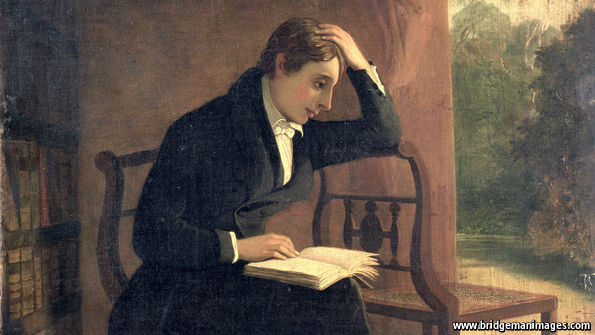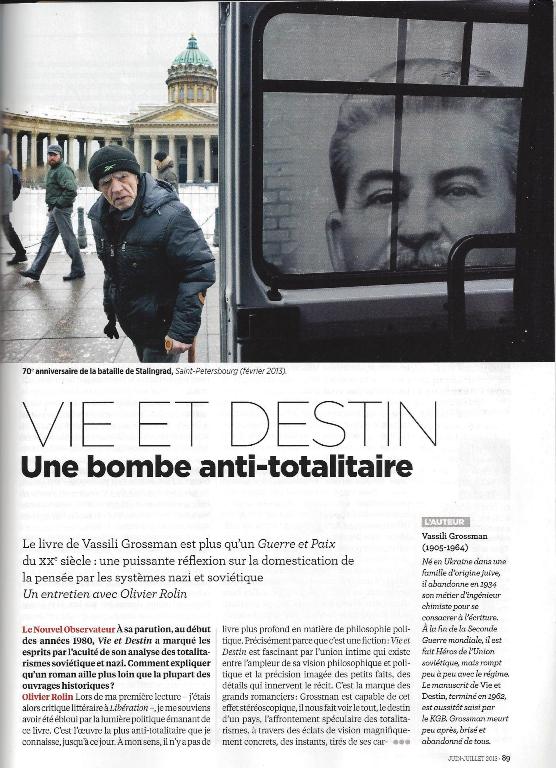Nguyễn Quốc Trụ
Sinh 16 tháng Tám,
1937
Kinh
Môn,
Hải Dương
[Bắc
Việt]
Quê
Sơn
Tây
[Bắc
Việt]
Vào
Nam
1954
Học
Nguyễn
Trãi
[Hà-nội]
Chu Văn An,
Văn Khoa
[Sài-gòn]
Trước
1975
công
chức
Bưu
Điện
[Sài-gòn]
Tái
định
cư năm
1994
Canada
Đã
xuất
bản
Những
ngày
ở Sài-gòn
Tập
Truyện
[1970,
Sài
Gòn,
nhà
xb Đêm
Trắng
Huỳnh
Phan
Anh
chủ
trương]
Lần
cuối,
Sài-gòn
Thơ,
Truyện,
Tạp
luận
[Văn
Mới,
Cali.
1998]
Nơi
Người
Chết
Mỉm Cười
Tạp
Ghi
[Văn
Mới,
1999]
Nơi
dòng
sông
chảy
về phiá
Nam
[Sài
Gòn
Nhỏ,
Cali,
2004]
Viết
chung
với
Thảo
Trần
Chân
Dung
Văn Học
[Văn
Mới,
2005]
Trang Tin Văn, front page, khi quá đầy,
được
chuyển
qua Nhật
Ký
Tin Văn,
và
chuyển
về
những
bài
viết
liên
quan.
*
Một
khi
kiếm,
không
thấy trên
Nhật
Ký,
index:
Kiếm
theo
trang
có
đánh
số.
Theo
bài
viết.
Theo
từng
mục,
ở đầu trang
Tin
Văn.
Email
Nhìn
lại
những trang
Tin
Văn
cũ
1
2
3
4
5
Bản quyền Tin Văn
*
Tất
cả bài
vở
trên
Tin Văn,
ngoại
trừ
những
bài
có
tính
giới
thiệu,
chỉ
để sử dụng
cho cá
nhân
[for personal
use], xài
thoải
mái
[free]
Liu
Xiaobo
Elegies
Nobel
văn
chương
2012
Anh
Môn
Kỷ niệm 100 năm sinh của Milosz
IN MEMORIAM
W. G. SEBALD
http://tapchivanhoc.org
|

Kepler khám phá ra,
mặt trời là định tinh, và những vì sao khác,
như trái đất, mặt trăng… quay quanh mặt trời, từ 1 cảm quan
tôn giáo:
Chúa ban ánh sáng tới cho muôn loài.
Ngược hẳn Gấu Cà Chớn.
Gấu phát giác ra, những cái đọc trước 1975, là
để sửa soạn đón nhận cái họa Lò Thiêu, là
từ cảm quan “đói”, những ngày tù Đỗ Hòa!
Phải đến khi về già, nhìn lại, Gấu mới hiểu ra 1 điều
thật là tầm thường giản dị:
Giả như là Gấu có được cái ân sủng, là
1 tên Ky Tô, thì đời Gấu khác hẳn.
Bởi là vì rõ ràng là, Chúa
quá quan tâm đến 1 tên vô đạo là Gấu Cà
Chớn, tếu thế!
Cái gì gì:
Em linh hồn vô tội
Đeo thánh giá huy hoàng
Anh 1 đời sám hối.
Mà sao vẫn hoang đàng!
Lần đầu nghe
bản nhạc, là ở trong tù Đỗ Hòa.
Nghe 1 phát, là bủn rủn chân tay..... (1)
(1) Gấu có một bài viết,
cứ ấp ủ mãi, mà không làm sao viết ra được,
cho đến lúc thấy cái tít kỷ niệm 5 năm talawas !
Bài viết liên can đến một bài hát, Gấu
nghe, lần đầu trong đời, những ngày ở trại lao động cải tạo Đỗ Hòa,
Cần Giờ.
Chuyện Tình Buồn.
Có hai tay ca bài này thật là tới, một
là bạn thân của Gấu, Sĩ Phú, và một, Tuấn Ngọc.
Năm năm trời không gặp,
Được tin em lấy chồng...
..
Anh một đời rong ruổi,
Em tay bế tay bồng...
Chả là, trước khi bị tóm, bị tống đi lao động cải tạo,
một buổi tối, Gấu nhớ cô bạn quá, mò tới con hẻm ngày
xưa, đứng thật xa nhìn vô căn nhà, lúc đó
cũng đã tối, thành thử cũng chẳng ai thèm để ý,
và Gấu thấy cô bạn ngày nào đang đùa
với mấy đứa con, đứa bò, đứa nằm dưới sàn nhà, tay
cô thì bận một đứa nữa.
Cảnh này, cứ mỗi lần nghe bản nhạc là lại hiện ra,
ngay cả những ngày sắp sửa đi xa như thế này....
Thế mới thảm !
Thế mới nhảm !
Thế mới chán ! NQT
Nhật Ký
64
***
GyorgyFaludy
(Hungary- mất ngày 1 Tháng Chín, 2006, thọ 95 tuổi)
chọn nhà tù. Ông đã được đề nghị, một cơ may,
chạy trốn quê hương, qua Áo định cư, nhưng từ chối, và
lý luận, rằng, tôi phải tận mắt chứng kiến, những đau khổ,
những rùng rợn, cho dù tới cỡ nào, mà những người
Cộng Sản mơ tưởng ra được, cho xứ sở của tôi
Không có viết và mực, ở trong trại tập trung Stalinist
tại Hung, Gyorgy Faludy dùng cọng chổi để viết, bằng máu,
và trên giấy vệ sinh. Đau khổ, như một lần ông nói,
không phải là một đức hạnh. Nhưng ba năm của ông tại Recsk,
từ 1950 đến 1953, theo một nghĩa nào đó, quả là những
năm tháng mặc khải. Tập thơ xuôi, "tản văn", như lối nói
hiện nay, nổi tiếng ở bên ngoài nước Hung, kể lại quãng
đời hưng phấn một cách âm u đó, darkly inspiring, tức
thời gian ông ở tù được ông đặt tên là “Những
Ngày Hạnh Phúc Của Tôi Ở Địa Ngục.
Note: Những ngày ở Đỗ Hòa của Gấu, 1 cách nào
đó, cũng là những ngày hạnh phúc. Gấu làm
báo nông trường, làm Y Tế Đội, nhờ lần thăm nuôi
đầu tiên và cũng là cuối cùng của Gấu Cái.
Những lần sau, bà cụ Gấu lo, tháng 1 lần, trong hai năm trời....
Thơ
Mỗi
Ngày

A Happy Love
A happy love. Is
it normal,
is it serious, is it profitable-
what use to the world are two people
who have no eyes for the world?
Elevated each for each, for no apparent merit,
by sheer chance singled out of a million, yet convinced
it had to be so-as reward for what? for nothing;
the light shines from nowhere-
why just on them, and not on others?
Is this an offense to justice? Yes.
Does it violate time-honored principles, does it cast
any moral down from the heights? It violates and casts down.
Look at the happy couple:
if they'd at least dissemble a bit,
feign depression and thereby cheer their friends!
Hear how they laugh-offensively.
And the language they speak-it only seems to make sense.
And all those ceremonials, ceremonies,
those elaborate obligations toward each other-
it all looks like a plot behind mankind's back!
It's even hard to foresee how far things might go,
if their example could be followed.
What could religions and poetries rely on,
what would be remembered, what abandoned,
who would want to keep within the bounds.
A happy love. Is it necessary?
Tact and common sense advise us to say no more of it
than of a scandal in Life's upper ranks.
Little cherubs get born without its help.
Never, ever could it populate the earth,
for it happens so seldom.
Let people who know naught of happy love
assert that nowhere is there a happy love.
With such faith, they would find it easier to live and to die.
Under a Certain Little Star
I apologize to coincidence for calling it necessity.
I apologize to necessity just in case I'm mistaken.
Let happiness be not angry that I take it as my own.
Let the dead not remember they scarcely smoulder in my
memory.
I apologize to time for the muchness of the world overlooked per
second.
I apologize to old love for regarding the new as the first.
Forgive me, far-off wars, for bringing flowers home.
Forgive me, open wounds, for pricking my finger.
I apologize to those who cry out of the depths for the minuet-
record.
I apologize to people at railway stations for sleeping at five in
the morning.
Pardon me, hounded hope, for laughing now and again.
Pardon me, deserts, for not rushing up with a spoonful of water.
And you, O falcon, the same these many years, in that same
cage,
forever staring motionless at that self-same spot,
absolve me, even though you are but a stuffed bird.
I apologize to the cut-down tree for the table's four legs.
I apologize to big questions for small answers.
O Truth, do not pay me too much heed.
O Solemnity, be magnanimous unto me.
Endure, mystery of existence, that I pluck out the threads of
your train.
Accuse me not, O soul, of possessing you but seldom.
I apologize to everything that I cannot be everywhere.
I apologize to everyone that I cannot be every man and woman.
I know that as long as I live nothing can justify me,
because I myself am an obstacle to myself.
Take it not amiss, O speech, that I borrow weighty words,
and later try hard to make them seem light.
The Suicide's Room
You certainly think
that the room was empty.
Yet it had three chairs with sturdy backs.
And a lamp effective against the dark.
A desk, on the desk a wallet, some newspapers.
An un sorrowful Buddha, a sorrowful Jesus.
Seven good-luck elephants, and in a drawer a notebook.
You think that our addresses were not there?
You think there were no books, pictures, records?
But there was a consoling trumpet in black hands.
Saskia with a heartfelt flower of love.
Joy the fair spark of the gods.
Odysseus on the shelf in life-giving sleep
after the labors of Book Five.
Moralists,
their names imprinted in syllables of gold
on beautifully tanned spines.
Right next, statesmen standing straight.
And not without a way out, if only through the door,
not without prospects, if only through the window,
that is how the room looked.
Distance glasses lay on the windowsill.
A single fly buzzed, that is, was still alive.
You think at least the note made something clear.
Now what if I tell you that there was no note-
and so many of us, friends of his, yet all could fit
in the empty envelope propped against the glass.
Transtromer
Page
TTT 10 years Tribute
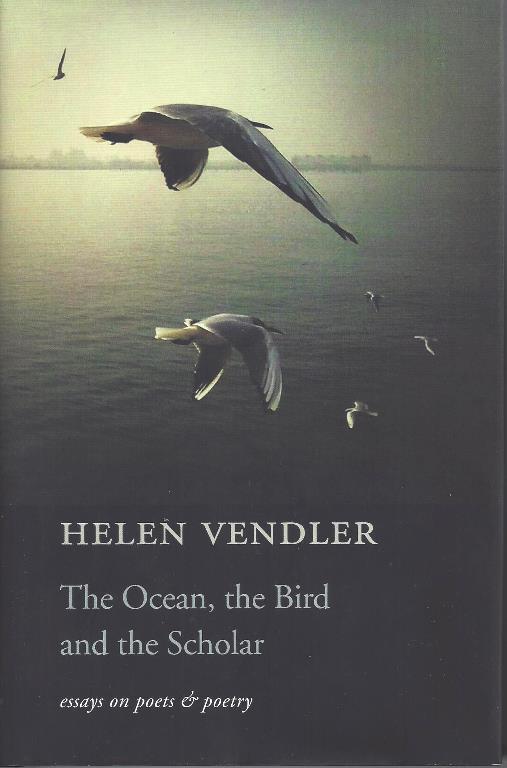
C uốn này, thấy lâu rồi,
nhưng không dám đụng vô. Bìa
cứng, xót tiền quá, và đọc,
thì cũng cực quá.
Nhân
Tết Mít, bèn bệ về, vì, cũng
có ý, đi 1 đường tưởng niệm ông anh
nhà thơ, bằng cái bài của bà
nữ phê bình TK "Yankee mũi lõ" này,
về Langston Hughes.
Lần
đầu GCC nghe cái tên ông nhà
thơ da đen này, là qua thơ TTT.
Nghê
thuật đen.
Đen,
với ông anh là da đen, là Jazz...
Nhưng
với GCC, là… cơm đen!
Như cái
note dưới đây
Suicide's Note:
The calm,
Cool
face of the river
Asked
me for a kiss
*
Christ is a nigger,
Beaten and
black:
Oh, bare
your back!
Mary is His
mother:
Mammy of
the South,
Silence your
mouth.
God is His
father:
White Master
above
Grant Him
your love.
Most holy
bastard
Of the bleeding
mouth,
Nigger Christ
On the cross
Of the South
Christ là tên mọi đen
Bị đánh đập, và đen:
Ôi, trật cái lưng ra đây!
Mary là Má của Nó,
Nam Kít
Hãy câm miệng!
Chúa của Nó
Da trắng ở trên Trời
Ban cho Nó tình yêu
Ôi đứa con hoang kia ơi
Miệng đầy máu
Christ da đen
Trên thập tự
Christ, Nam Kít!
*
The saxophone
Has a vulgar
tone.
I wish it
would
Let me alone.
The saxophone
Is ordinary.
More than
that,
It's mercenary!
The saxophone's
An instrument
By which
I wish
1'd never
been
Sent!
*
Me and the Mule
My old mule,
He's got
a grin on his face.
He's been
a mule so long
He's forgot
about his race.
I'm like
that old mule-
Black-and
don't give a damn!
You got to
take me
Like I am.
Helen Vendler: The Unweary Blues. The Collected Poems of Langston
Hughes
[in The Ocean, the Bird and the Scholar]
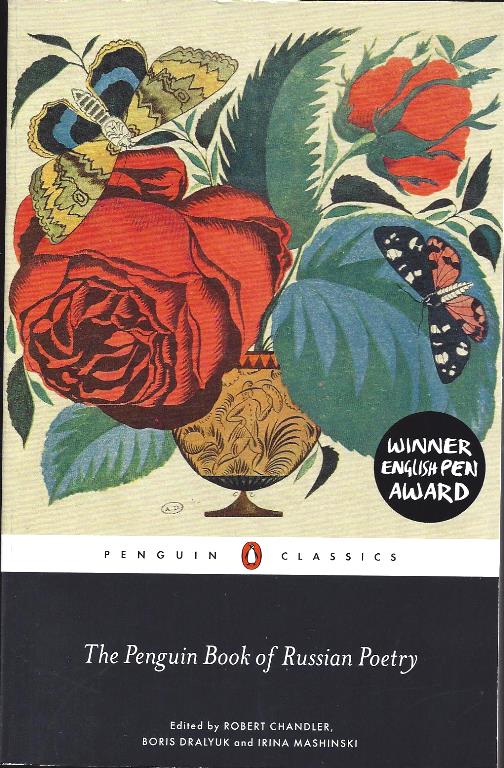
Semyon Lipkin (I911-2003)
Born
in Odessa, Semyon Israilievich Lipkin moved to Moscow in 1929. Unable
from 1934 to publish his own work, he turned to translating, mainly from
Persian and the Turkic languages of Central Asia. His first collection
of his own poetry appeared only in 1967. He also wrote a novel about Stalin's
deportation of the Chechens, and a memoir of Vasily Grossman. It was
Lipkin who initiated the process that led to the text of Grossman’s Life
and Fate being smuggled out to the West.
By the Sea
The waves crashed under the flicker of the lighthouse
and I, in my ignorance, heard a monotone.
Years later the sea speaks to me and I begin to understand
there are birds and laundresses, sprites and sorcerers,
laments and curses, moans and profanity, white horses
and half breeds who rear up unexpectedly.
There are waves who are salesgirls with buxom hips
who sell foam from the counter, they tremble fluent or airy.
Nature can't be indifferent, she always mimics us
like a loan, a translation; we're the blueprint, she's the
copy.
Once upon a time the pebble was different
and so the wave was different.
(1965)
Yvonne Green
*
He
who gave the wind its weight,
and gave measure to the water,
pointed lightning on its path,
and showed rain what rules to follow -
he once told me with quiet joy:
'No one's ever going to kill you:
How can dust be broken down?
Who has power to ruin beggars?'
(1981)
Robert Chandler
Nhờ Lipkin mà Tây Phương được đọc tuyệt tác
Đời và Số Phận của Vasily Grossman
Bác
đọc quyển này chưa – 832 trang, bây giờ bán ở format
de poche rồi. Bác cốp theo kiểu này viết đi, lồng trong
chế độ là cảnh đời của người dân. Bác có trí
nhớ phi thường, bác không viết thì ai mà viết
được.
Tks
NQT
"Mort de l'esclave
et réssurection de l'homme libre".
Dans ce roman-fresque,
composé dans les années 1950, à la façon
de Guerre et paix,
Vassili Grossman (1905-1964) fait revivre l'URSS en guerre à
travers le destin d'une famille, dont les membres nous amènent
tour à tour dans Stalingrad assiégée, dans les
laboratoires de recherche scientifique, dans la vie ordinaire du peuple
russe, et jusqu'à Treblinka sur les pas de l'Armée rouge.
Au-delà de ces destins souvent tragiques, il s'interroge sur la
terrifiante convergence des systèmes nazi et communiste alors
même qu'ils s'affrontent sans merci. Radicalement iconoclaste
en son temps - le manuscrit fut confisqué par le KGB, tandis
qu'une copie parvenait clandestinement en Occident -, ce livre pose
sur l'histoire du XXe siècle une question que philosophes et historiens
n'ont cessé d'explorer depuis lors. Il le fait sous la forme d'une
grande œuvre littéraire, imprégnée de vie et d'humanité,
qui transcende le documentaire et la polémique pour atteindre
à une vision puissante, métaphysique, de la lutte éternelle
du bien contre le mal.
Destin de Grossman
Vie
et destin est l'un des chefs-d'oeuvre du XXème siècle.
On n'en lisait pourtant qu'une version incomplète depuis que les
manuscrits avaient été arrachés au KGB et à
la censure. Celle que Bouquins propose désormais est la
première intégrale. Elle a été révisée
à partir de l'édition russe qui fait désormais autorité,
celle de 2005, et traduite comme la précédente par Alexis
Berelowitch et Anne Coldefy-Faucard. Raison de plus pour se
le procurer. Ce volume sobrement intitulé Oeuvres (1152
pages, 30 euros) contient également une dizaine de nouvelles, le
roman Tout passe, texte testamentaire qui dresse notamment
le portrait d'une série de Judas, et divers documents dont une
lettre à Kroutchtchev. Mais Vie et destin, roman
dédié à sa mère par un narrateur qui s'adresse
constamment à elle, demeurera l'oeuvre qui éclipse toutes
les autres. La bataille de Stalingrad est un morceau d'anthologie, et,
au-delà de sa signfication idéologique, la manière
dont l'auteur passe subrepticement dans la ville de l'évocation
du camp nazi au goulag soviétique est un modèle d'écriture.
Toute une oeuvre parue à titre posthume.
Dans son éclairante préface, Tzvetan
Todorov résume en quelques lignes "l'énigme" de Vassili Grossman (1905-1964)
:
" Comment se fait-il
qu'il soit le seul écrivain soviétique connu à
avoir subi une conversion radicale, passant de la soumission à
la révolte, de l'aveuglement à la lucidité ? Le
seul à avoir été, d'abord, un serviteur orthodoxe
et apeuré du régime, et à avoir osé, dans
un deuxième temps, affronter le problème de l'Etat totalitaire
dans toutes son ampleur ?"
On songe bien sûr
à Pasternak et Soljenitsyne. Mais le préfacier,
anticipant la réaction du lecteur, récuse aussitôt
les comparaisons au motif que le premier était alors un écrivain
de premier plan et que la mise à nu du phénomène
totalitaire n'était pas au coeur de son Docteur Jivago
; ce qui n'est évidemment pas le cas du second avec Une Journée
d'Ivan Denissovitch, à ceci près rappelle Todorov,
qu'étant un inconnu dans le milieu littéraire, il n'avait
rien à perdre. La métamorphose de Grossman
est donc un cas d'école unique en son genre :"mort de l'esclave et réssurection
de l'homme libre".
Bảnh hơn Pasternak, bảnh hơn
cả Solzhenitsyn, Tzvetan Todorov, trong lời tựa, thổi Đời & Số Mệnh của Grossman: Cái
chết của tên nô lệ và sự tái sinh của con
người tự do.
Tờ Obs, số đặc biệt về những tuyệt tác của văn học,
kể ra hai cuốn cùng dòng, là Gulag của Solz, 1 cuốn sách
lật đổ 1 đế quốc, và Vie & Destin
của Grossman: Trái bom chống toàn
trị.
TV sẽ giới thiệu bài phỏng vấn Ovivier Rolin, trên
tờ Obs.
Why even poets hate poetry
The Hatred of Poetry.
By Ben Lerner. Farrar, Straus & Giroux; 86 pages; $12. Fitzcarraldo;
£9.99.
POETRY has
always occupied an ambivalent space in society. In the ancient world
Plato banned poets from his ideal republic; today they have to navigate
the “embarrassment or suspicion or anger” that follows when they
admit to their profession in public. Ben Lerner understands this hatred:
as a poet he has been on the receiving end of it, but also, more interestingly,
he has felt it himself.
Long before
he published his two acclaimed novels, “Leaving the Atocha Station” and “10:04”,
Mr Lerner was known as a poet. Yet the biographical details that are woven
into this short and spirited discussion suggest an uneasy relationship with
the form. As a boy, charged with learning a poem, Mr Lerner tried to game
the system by asking his librarian which was the shortest; later in life
he confesses that he has never heard what Sir Philip Sidney described as
“the planet-like music of poetry”, nor experienced the “trance-like state”
widely said by critics to be induced by John Keats (“I’ve never seen any
critic in a trance-like state,” he adds, not unfairly.)
Yet Mr Lerner
does not see all this as a problem; indeed, he believes it to be
central to the art form. Poets and non-poets alike hate poetry, he
argues, because poetry will always fail to deliver on the transcendental
demands people have invested in it. As a result they enjoy pronouncing
upon the abstract powers and possibilities of poetry more than they
actually like to sit down and read it. As Keats wrote in “Ode on a Grecian
Urn”, “Heard melodies are sweet, but those unheard/Are sweeter.” Mr
Lerner takes his cue from Keats, but is a little more frank when he
describes “the fatal problem with poetry: poems”.
This inevitable
sense of falling short is expressed in some of the best poetry ever
written, he says, and he elaborates his point with energised discussions
of Keats, Walt Whitman and Emily Dickinson. But it is also inadvertently
present in some of the worst poetry ever written. “Alas! I am very
sorry to say/That 90 lives have been taken away”, wrote William Topaz
McGonagall, a Scottish poet, in a notoriously underwhelming response
to the Tay Bridge disaster of 1879. “When called upon to memorialise
a faulty bridge, McGonagall constructs another,” writes Mr Lerner,
as he dissects McGonagall’s swirling metrical confusion with poetically
informed glee across a number of pages.
But McGonagall’s
literary ineptitude is well known, and Mr Lerner’s essay becomes
most interesting when he ventures into more contemporary territory,
attacking with polemic zeal what he sees as confused critical assaults
on modern poetry: the belief in a “vague past the nostalgists can
never quite pinpoint” when poetry could still unite everyone, or in a
“capacity to transcend history” that often seems to rely on its poetic
purveyors being “white men of a certain class”. The hatred of poetry, Mr
Lerner shows, can suddenly and revealingly become a vehicle for bitter
politics. Yet he also sees communal redemption in the strange bond people
have with this ancient art form: if we constantly think poetry is an embarrassing
failure, then that means that we still, somewhere, have faith that it
can succeed.
http://tanvien.net/new_daily_poetry/9.html
MIRRORS AT 4 A.M.
You must come to them sideways
In rooms webbed in shadow,
Sneak a view of their emptiness
Without them catching
A glimpse of you in return.
The secret is,
Even the empty bed is a burden to them,
A pretense.
They are more themselves keeping
The company of a blank wall,
The company of time and eternity
Which, begging your pardon,
Cast no image
As they admire themselves in the mirror,
While you stand to the side
Pulling a hanky out
To wipe your brow surreptitiously.
Charles Simic: Sixty
Poems
Gương, 4 giờ sáng
Bạn phải rón rén,
me mé, tới đó (1)
Những căn phòng, đầy mạng nhện, trong bóng
tối.
Lén nhìn 1 cú, cái vẻ trống
trơn của chúng
Đừng để chúng lén "đợp" lại bạn
Cũng 1 cú!
Niềm bí ẩn là,
Ngay cả cái giường trống trơn
Thì cũng là 1 gánh nặng cho chúng.
Một cái cớ.
Chúng thấy bình yên hơn
Cảm thấy chúng là chúng hơn
Khi có bạn quí cận kề
Là bức tường trần trụi
Là thời gian
Là vĩnh cửu
Những thứ đó, xin lỗi
bạn
Chúng đếch để bóng của chúng
Trên mặt gương
Khi chúng tự sướng
Trong lúc bạn đứng né
qua 1 bên
Rút chiếc khăn tay
Kín đáo lau lông mày
1.
with one side faced forward
<I had to walk sideways to
get between the two towering piles of boxes>
Synonyms broadside, crabwise,
edgeways [chiefly British] [net]
Chữ này - sideways -
của tiếng anh hay quá, tiếng việt không có từ tương đương
. Nó vừa có nghĩa là không đi thẳng đến
trước mặt, chỉ đi bên mé, bên rìa, hoặc
đi bằng ngõ vòng vo, lại vừa có nghĩa len lén
.
K
Note: Bài thơ này, mới thấy trên Gió-O.
Nhớ là, không làm sao dịch được từ
"sideways", bèn cầu cứu K.
Tks again.
Bản của Lý Ốc, theo Gấu, dịch ẩu quá, "as
always": "to them" sao mà là "đến bên cạnh chúng";
nếu đã "lén" lau chân mày,
thì cắt bỏ "một cách kín đáo"!
Thảo nào, ngay cả thi sĩ mà cũng thù
ghét thơ!
Why?
Poets
and non-poets alike hate poetry, he argues, because poetry will
always fail to deliver on the transcendental demands people have invested
in it. As a result they enjoy pronouncing upon the abstract powers and
possibilities of poetry more than they actually like to sit down and
read it. As Keats wrote in “Ode on a Grecian Urn”, “Heard melodies are
sweet, but those unheard/Are sweeter.” Mr Lerner takes his cue from
Keats, but is a little more frank when he describes “the fatal problem
with poetry: poems”.
Đọc thơ tán gái/thơ
ngồi bên ly cà phê nhớ bạn hiền thì thật là
ngọt ngào/ Nhưng đếch đọc chúng, ngọt hơn nhiều!
Thơ luôn thất bại, không đáp trả những
đòi hỏi siêu thoát mà người đọc đầu tư
vào nó
Cái vấn nạn tàn khốc của thơ, chính
là: những bài thơ!
http://www.gio-o.com/LyOcBR/LyOcBRTamGuongDich.htm
Những Tấm Gương Lúc 4 AM
Em hãy đi nép đến bên
cạnh chúng
Những căn phòng trong in bóng sọc giăng,
Len lén nhìn vào cõi không
gian trống trơn
Đừng để chúng bắt dính
Một ánh liếc nhìn của em dội lại.
Bí mật là,
Ngay cả chiếc giuờng trống cũng mang gánh nặng,
Một sự giả vờ.
Chúng vẫn còn đang tự gắn liền
Sự kết liên với bức tường phẳng tắp,
Mối thân quen cùng với thời gian và
muôn năm
Mà, xin em,
Hãy lánh mặt
Khi chúng tự ái mộ mình trong gương;
Trong khi em đứng nép bên
cạnh
Lấy ra chiếc khăn tay
Em lén lau nét chân mày một
cách kín đáo.
Đọc/Viết
mỗi ngày

Trăng ơi
thơ ấu mãi
Note: Bài viết này,
về tập truyện ngắn của 1 bạn văn - có thể là do 1 đấng phi
công VC vừa đi xa, lại được 1 bạn văn khác, NND, trích
& post một mẩu trên FB - khiến thiên hạ xôn xao.
Nay post lại toàn thể.
Nó liên can đến 1 cô bé, và
Hà Nội của cô bé đó, cả hai thì đều
đã mất.
Hà Nội Của Gấu
Gấu, Bắc Kỳ 54. Rời Hà Nội khi
vừa mới biết yêu cái cột đèn, cái ngã
tư, tiếng còi mười giờ chạy trên thành phố... Vào
Nam, Gấu nhớ tiếng còi, nhớ cái tháp rùa đến
ngơ ngẩn mụ cả người, bèn tự nhủ thầm, phải kiếm cho được một cô
bé Hà Nội...
Cô là em của một người bạn học. Ông anh vợ
hụt học dưới Gấu một lớp. Quen qua một người bạn, tên Uyển, hồi
ở hẻm Đội Có, Phú Nhuận.
Kỷ niệm lần đầu tới nhà cô bé, nghĩ lại thấy
thật buồn cười.
Ông anh cô khi đó đang học Đệ Tam, ban toán,
và ông đã ra câu đố: muốn gặp em tao thì
phải giải cho được bài toán hình học này.
Chẳng hiểu ông thực tình bí, hay là muốn
thử tài, theo kiểu: mày có đủ sức chinh phục con
em tao hay không? Hồi đi học, Gấu vốn nổi tiếng là một cây
toán. Cô em cũng dân toán, sau học y khoa.
Lên đại học, ghi danh chứng chỉ Toán Đại Cương;
tới kỳ thi, không hiểu bài toán muốn gì,
Gấu nộp giấy trắng ra về!
Nhà nghèo, Gấu chỉ đủ tiền mua cours của giáo
sư Monavon, mà không hề làm một bài tập nào.
Ôi, giấc mộng đã tan mà sao ảo tưởng vẫn
còn!
Khi Gấu quen, cô bé mới mười một tuổi, chưa có
núm cau. Chưa có gì, chỉ có một nỗi buồn
Hà Nội, ở trong đôi mắt thăm thẳm.
Như lạnh lùng tra hỏi: anh yêu tôi hay là
anh yêu Hà Nội?
Vừa ra ý ỡm ờ: anh yêu tôi, vì tôi
độc?
Và đẹp?
Nhà cô bé giầu, Gấu sững sờ tự hỏi, tại sao
lại có nỗi buồn như thế ở trong cô bé mới mười một
tuổi?
Sau này thân rồi, cô tâm sự: đi học,
H. chỉ có mỗi một cái áo dài trắng độc nhất.
Có lần, H. nghe mấy con bạn nói đằng sau lưng: con nhỏ
này nó làm bộ nghèo...
Lần cuối cùng gặp cô bé, khi mối tình
đã tan vỡ. Cô lúc này coi Gấu như một người
thân, nói: H. mới đi chợ cho mẹ, lỡ tiêu quá
một chút, anh đưa H. để bù vô. H. rất ghét
phải giải thích...
Em gái của cô, mỗi lần thấy bố vô phòng,
là bỏ ra ngoài.
Lần cuối cùng hẹn gặp trước khi Gấu lấy vợ: cô đang
học y khoa, ở tít mãi trong Chợ Lớn. Chỗ gặp mặt là
một quán Tầu ngay Chợ Đũi. Gấu vẫn thường ngồi đó, chờ
cô bé đưa em đi học tại một trường kế bên, rồi ghé.
Cô em gái có lần thấy, đang bữa ăn chiều như nhớ
ra, kêu "chị, chị ra đây em nói cái này
hay lắm: buổi sáng em thấy chị đi với anh Gấu."
Bạn bè, cô, và cô em gái vẫn
gọi anh bằng cái tên đó. "Có thể bữa nào
giận H. nó sẽ nói cho cả nhà nghe, nhưng cũng chẳng
sao..."; Gấu ngồi chờ, cố nhớ lại những kỷ niệm cũ. Khi quá giờ
hẹn 5 phút, anh bỏ đi.
Sau này, anh nghe cô kể lại: Bữa đó, trời
mưa lớn, H. đội mưa chạy xe từ Đại học Y khoa, suốt quãng đường
Chợ Lớn - Sài Gòn. Cũng biết là vô ích,
vô phương. Lũ bạn nói, con này điên rồi. Tới nơi,
đã trễ hẹn. Thường, em vẫn trễ hẹn, anh vẫn chờ (có lần anh
nói anh có cả một đời để chờ...), nhưng lần đó, em
hiểu.
Bữa đó, mưa lớn thật. Gấu đội mưa đi ra khỏi quán.
Đi khơi khơi, không chủ đích, mơ hồ hy vọng những đợt mưa
xối xả trên thành phố Sài Gòn xóa
sạch giùm tất cả những kỷ niệm về một cô gái
Hà Nội,
độc,
và
đẹp...
Độc, là chuyện sau này, do Gấu tưởng tượng ra,
khi đi tìm một cái tên, cho một cuộc chiến.
Sự thực, những kỷ niệm về một miền đất, về một thành phố,
và về cô bé, chúng thật đẹp.
*****
"Suốt khoảng phố gần trường toàn nhà một tầng cửa
gỗ lùa, lọt vào một nhà cửa sổ chấn song sắt luôn
mở rộng. Có một lồng chim ngày nào đi học tôi
cũng thấy treo phía ngoài. Chim gì chẳng đẹp. Trông
như mớ cỏ rối. Nhưng tiếng hót thì trong veo. Trong. Và
phấp phỏng như nắng thu đang do dự rây qua ngàn vạn lá
xuống phố. Nhà ấy không bán hàng. Có
những đứa trẻ ăn mặc đẹp hơn tôi, chân đi dép nhựa
ra vào. Chúng đến đó học đàn. Chúng
làm tôi tủi thân nhiều hơn là thẹn. Có
một lần tôi bị tụt quai dép cao su và tôi chẳng
còn cách nào hơn là lếch thếch xách
cả dép lẫn cặp nhón nhén đi bộ trên hè
phố trước mặt chúng nó.
Từ ngôi nhà chúng ra vào bay ra những
hợp âm thô kệch, lập cập. Thua tiếng hót của con
chim giống như nùi cỏ rối (....) Nhưng không hiểu sao tôi
cứ buồn buồn khi nghe tiếng dương cầm vang lên lập cà lập
cập dưới ngón tay bọn trẻ con không quen biết..."
"Có lần tôi nhìn thấy cô chơi đàn.
Tôi không biết đó là bản gì. Nhưng tiếng
pi-a-nô buổi tối thành phố lên đèn ấy tôi
nhớ lập tức. Tiếng đàn mới cao sang làm sao. Trong vắt.
Róc rách. Dường như những thân sao đen cao vút
đang từ từ vướn lên, vòm lá mở ra để lộ một bầu trời
đen thẫm, mịn màng như một đĩa thạch và chi chít
sao."
"Chiến tranh đánh phá lần thứ hai. Có vẻ
ác liệt hơn lần trước. Cũng có thể là vì
tôi lớn hơn và biết sợ nhiều hơn trước. Chúng tôi
lại đi sơ tán. Để lại Hà Nội những hầm công cộng dài
rộng mênh mông, những hố tăng xê ngập nước ngày
mưa. Để lại tiếng loa truyền thanh và tiếng còi báo
động nghe hết hồn hết vía rú lên từ phía Nhà
Hát Lớn..."
".... Hồi ức chiến tranh thường chỉ quẫy cựa khi đi qua Phố Huế.
Một đứa lớp tôi chết ở đó. Vệt bom liếm hết nhà
nó thì dừng và hôm đó là hôm
nó về lấy gạo nuôi em."
(Những giọt trầm, truyện ngắn Lê Minh Hà)
Gấu được đi học Hà Nội, là nhờ bà cô
lấy chồng Pháp. Một kỹ sư Sở Hỏa Xa Đông Dương. Bà
cô đẹp, cao, sang, không một chút liên can tới
cái làng nghèo đói ven đê sông
Hồng. Người ở đó không muốn bà về. Chỉ cần tháng
tháng gửi tiền. Vì cũng là một người cùng làng,
thằng cháu bị vạ lây, thời gian đầu sống với bà cô.
Có thể, lúc đầu bà cô chỉ nghĩ tới
Gấu, do tội nghiệp. Chẳng bao giờ bà hỏi han. Gấu cũng chẳng dám
đòi hỏi gì, ngoài hai bữa cơm, rồi lo đi học. Bà
cho Gấu ở riêng một căn phòng kế bên nhà bếp.
Không được bén mảng lên nhà trên.
Gấu chỉ có một bộ quần áo đi học. Mỗi lần giặt,
ủi liền, cho kịp giờ đi học. Có những lần quá ướt, bàn
ủi không kịp nóng. Cho tới một bữa, Gấu ỷ y, chạy ra ngoài,
khi ngửi mùi khét thì đã xong một bên
ống quần.
Đó là một villa trông ra hồ Halais. Nhà
của hai ông Tây, đều kỹ sư Sở Hỏa Xa Đông Dương.
Ông Tây già, là chồng bà cô.
Chức vụ chắc thua ông Tây trẻ, vì ông này
có tới hai người hầu: một người bếp, một người bồi. Ông
Tây già ăn uống đều do bà vợ. Ông bếp già,
vào những ngày cuối tuần, chủ đi chơi, thường dắt gái
về nằm trong bóng tối hành lang phía trước. Mỗi
lần như vậy, Gấu lén lên nhà trên, bò
tới sát, chỉ cách bức tường, cánh cửa, rồi hồi hộp
lắng nghe. Một lần cô gái làng chơi biết, nói:
có người ở bên trong nhà. Ông bếp hừ, hai thằng
bé, trời tối mịt, chúng nó chẳng thấy gì đâu.
Mỵ là tên anh bồi. Gấu không nhớ tên
ông bếp già. Ông rất thù ghét Tây,
tuy làm bồi bếp. Gấu biết từng chi tiết chiến thắng Điện Biên
Phủ, là do ông kể. Chắc cũng chỉ từ trí tưởng tượng
của ông. Hiệp định Genève chia đôi đất nước, ông
về làng, chắc chắn là khổ sở với quá khứ Việt gian.
Gấu gặp cả hai vợ chồng anh Mỵ, và đứa con gái duy nhất mới
sinh được vài tháng, ở Hải Phòng, những ngày
chờ đợi tầu. Thằng em đã về quê, ở với bà vợ lớn.
Lần đó, anh Mỵ nói với bà cô. Bữa
hôm sau, bà dẫn Gấu đi mua mấy bộ quần áo. Bà
mắng: tại sao không nói. Thấy thằng cháu im thin
thít, bà như hiểu ra, giải thích: Tao chỉ ghét
mẹ mày. Cả làng cả họ cứ xúm vào gấu váy
con mụ me Tây này.
Không những mắng, mà còn tát
cho Gấu vài cái.
Đó là lần bà bắt gặp hai đứa, Gấu, thằng
Hìu, em anh Mỵ, trời tối thui mà cũng cố căng mắt nhìn
ra phía ngoài...
Lếch thếch xách dép, một kỷ niệm như vậy
dù sao cũng dễ thương hơn nhiều, so với của Gấu, những ngày
đầu học Nguyễn Trãi, với cái quần độc nhất, với đôi
guốc lạch cạch nện trên đường phố, trong sân trường. Nhưng
dù dép, dù guốc, cũng không bằng chân
trần, lúc tan học, nhìn lũ bạn đứng từ ngoài liệng
cả dép lẫn cặp vào tới tận gậm giường bên trong nhà,
rồi theo nhau chạy ra bãi cát dưới chân cầu sông
Hồng, hoặc lang thang bên dưới vòm trời thành phố.
Và tiếng còi dễ thương đuổi theo Gấu suốt đời chưa biến
thành ghê rợn, nhưng tiếng kèn đồng thê thảm
từ một vũ trường gần bờ Hồ theo Gấu mãi, cùng với hình
ảnh cô gái bán rau muống bị Tây hiếp đứng co
ro cố túm chiếc quần còn rỉ dòng nước nhờn, khi nhìn
thấy thằng nhỏ đi học đang bước tới, ngay gần nhà ở ngoại ô
Bạch Mai, kế bên đường rầy xe điện.
"Vậy mà không hiểu sao đôi khi tôi
cứ nghẹn ngào, không làm sao dứt đứt ra khỏi lòng
dạ những xôn xao của cái thời ngốc".
(Lê Minh Hà, Những giọt trầm)
Ngay khi từ biệt, Gấu đã biết, sẽ có ngày
cô bé (Hà-nội?) trở lại, qua một hình
bóng khác. Khó mà dứt đứt ra khỏi lòng
dạ, một thành phố, một đoạn đời.
Sự thực, khi gặp ông anh vợ hụt lần đầu, Gấu không
hề biết, ông có một người em gái, tên là
"cô bé". Nhưng chuyện ông đưa ra bài toán
đố là có thiệt. Về già nghĩ lại, bao chuyện may
rủi trên đời, đều là do chuyện mê toán của
Gấu, kể từ khi còn ở Hà Nội. Người đầu tiên khám
phá ra tài làm toán của Gấu là Ông
Tây, chồng bà cô.
Bà cô Gấu, tuy bề ngoài lạnh lùng,
nhưng lúc nào cũng để ý đến Gấu, qua... Ông
Tây. Một lần bà nói, “Ông Tây bảo, mày
còn ngu hơn thằng Hìu, em anh Mỹ”.
Đó là một buổi chiều, Ông Tây
đi làm về. Có bà cô ngồi trên xe. Khi
xe làm hiệu rẽ vào cổng, thằng cháu nhanh nhẩu
tập làm bồi, mở vội hai cánh cổng bằng sắt. Thằng Hìu
đứng bên, dơ tay chặn lại. Không hiểu làm sao nó
biết, hai người chỉ đậu xe, về nhà thay đồ, và còn
đi shopping.
Lần thứ nhì đụng độ Ông Tây, là
bữa Gấu mê mải làm toán, ngay hàng lang trước
villa. Dùng phấn trắng vẽ ngay trên mặt gạch. Gấu không
nghe thấy tiếng xe, tiếng mở cổng, ngay cả khi Ông Tây tới
sát bên Gấu… chỉ tới khi ông hừ một tiếng rất ư là
hài lòng, và sau đó bỏ vào trong nhà.
Chắc ông đã mê mải theo dõi, và hồi hộp,
không hiểu thằng bé nhà quê này có
chứng minh nổi bài toán hình học hay không.
Ông là kỹ sư, và hình ảnh thằng nhỏ đang say
sưa với bài toán đến nỗi quên phận sự làm bồi,
không mở cổng cho ông, có thể làm ông nhớ
lại thằng nhỏ-là ông ngày nào.
Bữa sau, bà cô mặt mày tươi tỉnh cải chính
câu nói bữa trước, “Không, Ông Tây nói,
mày thông minh hơn thằng Hìu.”
Chính Ông Tây mới là người quyết định
tương lai của Gấu. Bởi vì bà cô, kể từ đó,
đã có ý định cố lo cho thằng cháu ăn học.
Trong quyết định bỏ vào Nam của Gấu, có giấc mơ
học giỏi tiếng Pháp, để viết một bức thư cám ơn một ông
tây thuộc địa.
My Old Saigon
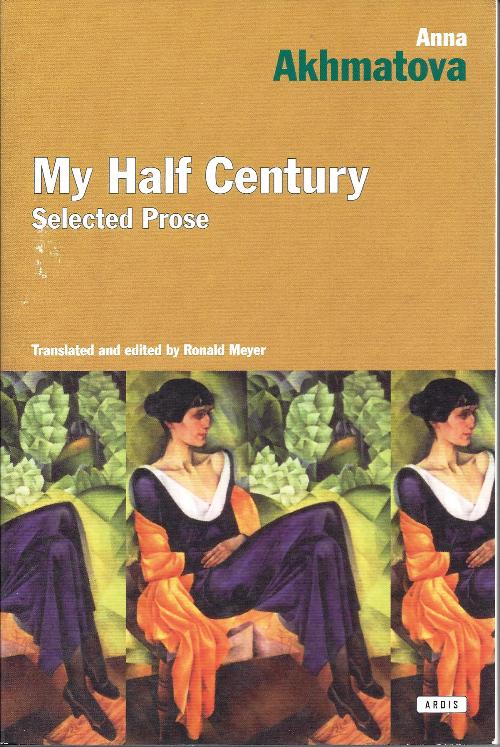
V/v SN của AA
Late at night. Monday. The
twenty-third.
The capital's outlines in the
mists.
Some idiot's given us the word,
He's informed the world that
love exists.
And out of boredom or laziness
Everyone believes and lives that
way:
They all look forward to trysts,
no less,
They sing their love songs night
and day.
But to some, the secret's revealed,
The smallest silence weighs like
a brick.
I too stumbled on what was concealed.
Since then I've felt as if I
was sick.
1917
Đêm khuya, muộn. Thứ Hai. Ngày 23
Những đường ven thủ đô, trong sương mù
Một tên ngu ngốc nào đó, phán
Rằng tình yêu vưỡn còn!
Yêu hiện hữu!
Và do chán quá, nản quá, và… lười
quá
Chúng ta bèn OK, OK!
Và mọi người bèn sống theo kiểu này:
Tất cả bèn mong ngóng, hẹn hò
Hát hò, ngày và đêm
Những bài tình ca của chúng ta!
Nhưng với vài người, bí mật bật mí
Một sự im lặng, dù nhỏ nhoi cỡ nào
Thì cũng nặng như đá
Gấu, cũng té nhào khi vấp vào điều được che giấu
Kể từ đó, lúc nào Gấu cũng cảm thấy bịnh!
AA viết về St. Petersburg làm
GCC nhớ Sài Gòn của Gấu.
Gấu cũng có 1 Saigon của Dos, và cũng đã từng
viết về nó, về những lần đọc Dos trong 1 quán cà
phê hủ tíu Tầu, trong khi chờ BHD.
Mùi cà phê, thì là mùi
cà phê túi, và thay vì cà phê
cháy, thì là mùi 1 ly hồng trà.
The City
THE WORLD
OF ART artists had a sense of Petersburg's "beauty" and it was they,
incidentally, who discovered mahogany furniture." I remember Petersburg
from very early on-beginning with the 1890s. It was essentially Dostoevsky's
Petersburg. It was Petersburg before streetcars, rumbling and clanking
horse-drawn trams, boats, signs plastered from top to bottom, unmercifully
hiding the buildings' lines. I took it in particularly freshly and keenly
after the quiet and fragrance of Tsarskoe Selo. Inside the arcade there
were clouds of pigeons and large icons in golden frames with lamps that
were never extinguished in the corner recesses of the passageways. The
Neva was covered with boats. A lot of foreign conversation on the street.
Many of the houses were painted red (like the Winter Palace), crimson,
and rose. There weren't any of these beige and gray colors that now
run together so depressingly with the frosty steam or the Leningrad twilight.
There were still a lot of magnificent wooden buildings then (the houses
of the nobility) on Kamennoostrovsky Prospect and around Tsarskoe Selo
Station. They were torn down for firewood in 1919. Even better were the
eighteenth-century two-story houses, some of which had been designed by
great architects. "They met a cruel fate"-they were renovated in the 1920s.
On the other hand, there was almost no greenery in Petersburg of the 1890s.
When my mother came to visit me for the last time in 1927, she, along with
her reminiscences of the People's Will, unconsciously recalled Petersburg
not of the 1890s, but of the 1870s (her youth), and she couldn't get over
the amount of greenery. And that was only the beginning! In the nineteenth
century there was nothing but granite and water.
More about the City
YOU CAN'T
BELIEVE YOUR eyes when you read that Petersburg staircases always smelled
of burnt coffee. There would often be tall mirrors and sometimes carpets.
But not in one single Petersburg home did one ever smell anything on
the staircase but the perfume of the ladies who had passed through and
the cigars of the gentlemen who had passed through. The fellow probably
had in mind the so-called "black" entrance (that is the back entrance,
nowadays, generally, the only one) and there it really could smell of
anything at all, because the doors from all the kitchens opened out onto
that stairway. For example, bliny for Shrovetide, mushrooms and fast-day
oil during Lent, and smelt from the Neva in May. When they were cooking
something pungent, the cooks would open the door onto the back staircase
"to let out the fumes" (that's how they termed it), but nevertheless, the
back staircase, alas, more often than not smelled of cats. The sounds in
the Petersburg courtyards. First of all, the sound of firewood being thrown
into the cellar. Organ-grinders ("Sing, my little sparrow, sing, soothe
my heart ... "), grinders ("I grind knives, scissors ... "), secondhand-clothes
dealers ("Dressing gowns, dressing gowns ... "), who were always Tatars.
Tinsmiths. "I've got Vyborg pretzels." The reverberation in the courtyards
and wells.
Smoke over the rooftops. The Petersburg Dutch ovens. The Petersburg
fireplaces-an ineffective offensive. The Petersburg fires during bitter
frosts. The peal of bells that would deafen the city with their sound.
The drum roll that always made one think of an execution. The sleds that
collided with all their might against the curbstones of the humpbacked bridges,
which now have nearly lost their humpbackedness. The last branch-line on
the islands always reminded me of a Japanese print. The horse's muzzle,
frozen with icicles, almost touching your shoulder. And then there was the
smell of damp leather in the horse-drawn cab when it rained. I composed
almost all of Rosary in conditions like these, and at home would merely write
down the finished poems.
Cùng với những cuộc phiêu
lưu của những tác phẩm lớn ở trong tôi, Sài-gòn
trở thành một sân khấu cho tôi đóng vai những
nhân vật-nhà văn. Thành phố thân yêu,
một buổi sáng đẹp trời bỗng nhường cho một St. Petersbourg thời
Dostoievsky với những cầu thang âm u, và cậu sinh viên,
trong một góc bàn tại một tiệm cà phê Tầu nơi
Ngã Sáu, một mình đi lại trong giấc mơ vĩ đại, biến
đổi thế giới, làm lại loài người.
Hay một London của Dickens, một buổi
chiều đầy sương mù, chú bé Oliver Twist đói
lả người, như tôi, một ngày trong chuỗi ngày cắp
sách đến trường, đêm đêm làm bồi bàn,
thời người Mỹ chưa đổ quân ào ạt vào Việt Nam. Thành
phố chưa có xa lộ, chưa có cầu Sài-gòn. Và
tiệm chả cá Thăng-Long nơi tôi tối tối bưng xoong mỡ sôi
đổ lên dĩa chả cá, nghe tiếng mỡ kêu xèo xèo,
chưa biến thành nhà hàng Kontiki ở ngay đầu đường
Phạm Đăng Hưng, nơi dành riêng cho đám quân
nhân Hoa Kỳ.
Ngày mai trời sẽ mưa trên
thành phố Bouville
Demain il pleuvra sur Bouville
(Sartre, La Nausée)
Ôi Sài-gòn, một
Sài-gòn hư tưởng, một Bouville, một London, của riêng
tôi đó!
|
Trang NQT
art2all.net

Lô
cốt
trên
đê
làng
Thanh Trì,
Sơn Tây
|
|
